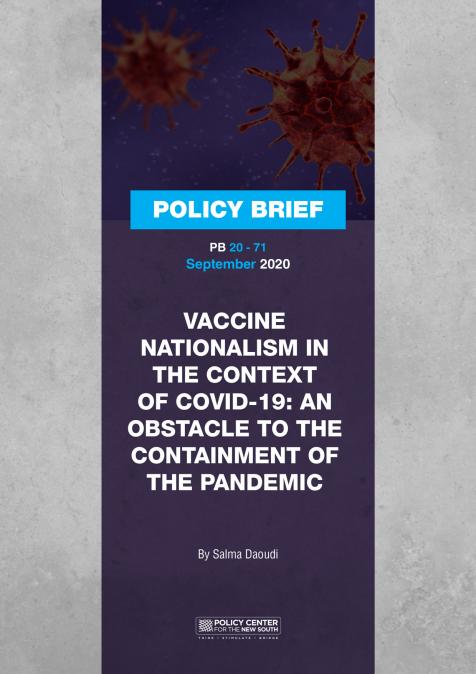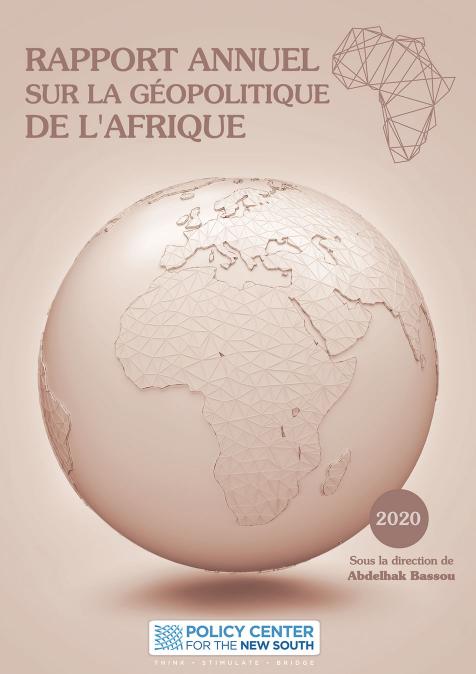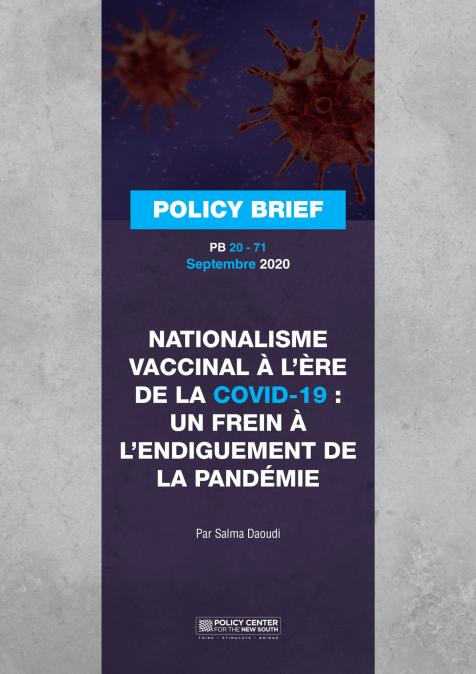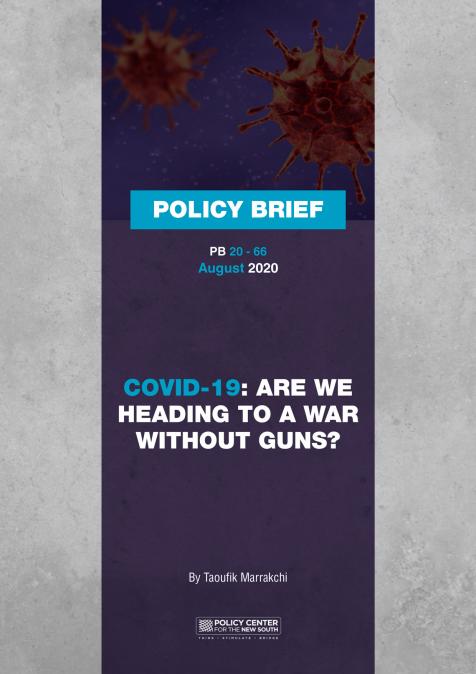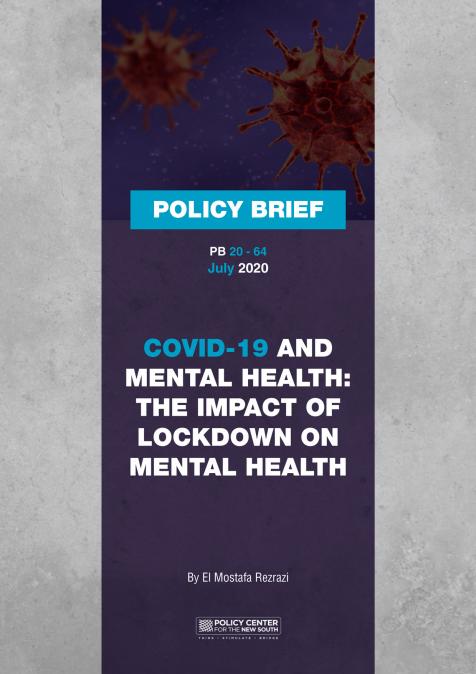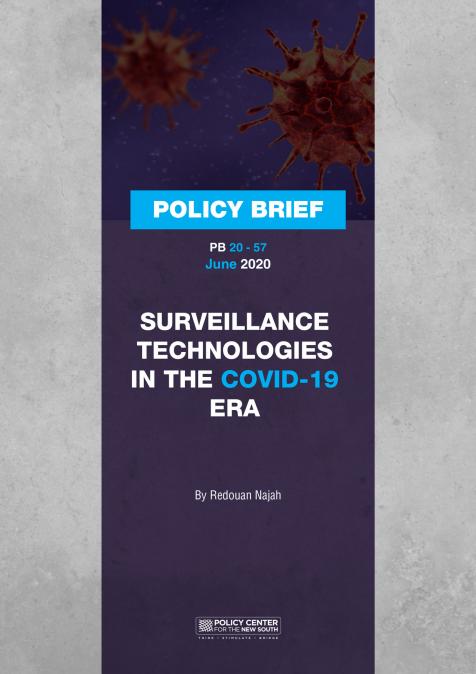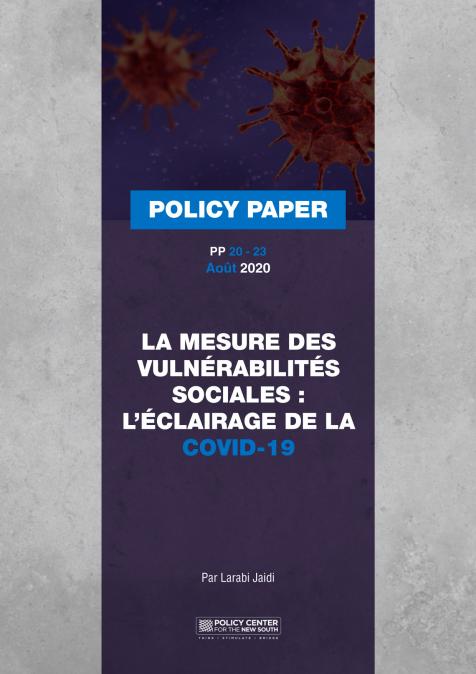Publications /
Opinion
It was an illusion. A dream or wishful thinking—and some fake news. Scientists would develop a vaccine at break-neck speed. It would be available for all, wealthy nations sharing with the poor. But unfortunately the COVID-19 deaths continue to mount. The world is facing a maddening bottleneck, predicted in October 2020 by the Policy Center for the New South on its opinion page, quoting scientists calculations that twelve to fifteen billion vaccine shots were needed, but glass manufacturers would be unable to deliver the needed vials in time, and the distribution process would be extremely difficult and slow for the first generation of vaccines.
Some nations are on schedule, the United Kingdom, for example, Morocco, Israel, Monaco. But Europe suffers, not at least because the European Union roll out has been lackluster, forcing European Commission President, Ursula von der Leyen to admit: “Of course, a country on its own can be a speedboat, the EU is more like a tanker”. Slow to maneuver, difficult to accelerate. “The west should pay attention to Russia and China’s vaccine diplomacy”, warned the Financial Times in February. Its writer, Anne-Sylvaine Chassany, noted that “since the start of the pandemic China and Russia have used medical supplies to pursue foreign policy gains”. Both sent masks and protective gear to hard-hit countries last spring. “Now they are promising their vaccines-with some success. With richer nations grapping the bulk of the authorized shots from western companies, low to middle class countries from Brazil and Nigeria to Algeria and Egypt are looking to Moscow and Beijing for doses”. China pledged half a billion doses to 45 nations, including buyers in Latin America and the Middle East. Vaccines from state-owned Sinopharme, reported the Financial Times, are distributed in the United Arab Emirates and the Balkans. Sinovac received orders from Turkey and Brazil. Hungary has bought two million doses of Russia’s Sputnik V vaccine, rolling it out in February. It also granted approval to a Chinese vaccine, with Prime Minister Victor Orban receiving one of the first jabs. Beijing, wrote the Financial Times, “has made a lasting impression by being the first provider of aid to many countries outside the EU, in particular in some of the poorest African nations”.
As wealthy countries inoculate millions of their citizens against COVID-19, noted Foreign Policy (March 1, 2021) and other countries wait to even begin the roll out, “G-7 leaders are increasingly struggling to address geopolitically charged vaccine inequities”. French President Emmanuel Macron recently noted his fear that countries would turn to China and Russia for vaccines and “the power of the west will … not be a reality”.
In her recent Policy Brief (Nationalisme Vaccinal a l’ere de la Covid 19: un frein a l’endiguement de la pandémie), Salma Daoudi of the Policy Center for the New South concluded that “a new evil is bringing down the world—vaccine nationalism”. This race against time, against others and against nature, Daoudi wrote, has not only given birth to a new form of nationalism, but “this geopolitical competition also bears the seal of a deep-rooted cold war logic, still resisting the test of time, the fruits of a historic rivalry dividing the world into distant blocks. Although the western powers are clearly in competition in developing a vaccine, they are still open to a certain level of cooperation as demonstrated by various agreements between the EU, the U.S. and the United Kingdom”. Rather, the real geopolitical antagonism positions them against Russia and China, she wrote. Russian and Chinese success is perceived, particularly by the United States, “as an existential threat to the hegemonic domination of the Western world, given the economic and diplomatic gains intrinsically linked to the discovery of a vaccine”.
A number of cyberattacks have been registered, for which China, Iran, Russia, and North Korea have been blamed. Iran has been named as the perpetrator of an attack against Gilead, the American pharmaceutical laboratory, whose Remdesivir was cleared as a treatment for certain severe COVID-19 cases. Ironically, stated Daoudi, the arms race is turning into a vaccine race. This new cold war will hardly promise a better world. Whatever the result, argues the scholar, who studied international relations and politics at Cambridge University, “like any conflict, it will cause collateral damage, and like any other race, it will leave some on the sidelines, breathless, unable to compete with American, European, Chinese, and Russian machines”.
Although about 50 vaccine candidates were in work last fall in countries including India, Turkey, Thailand, and even Brazil (which has one of the world’s worst death tolls from the virus), other emerging economies, severely suffocating through the health and political economic crises, do not have sufficient means to pay for access rights or the infrastructure necessary for mass production of pharmaceutical products. These countries may find themselves deprived of vaccines that can relieve the pressure on health systems that are increasingly weakened. Lack of vaccine access could also undermine those countries’ long-term economic, diplomatic, and strategic interests. Author Salma Daoudi: “Inequitable access to the vaccine against the virus would perpetuate the inequalities and jeopardize the health security of millions of people around the world”.
The opinions expressed in this article belong to the author.

